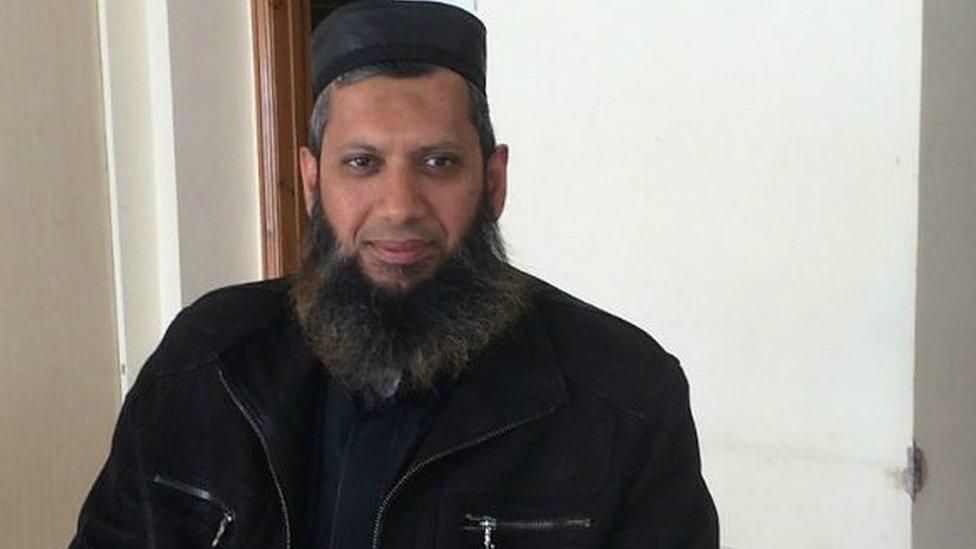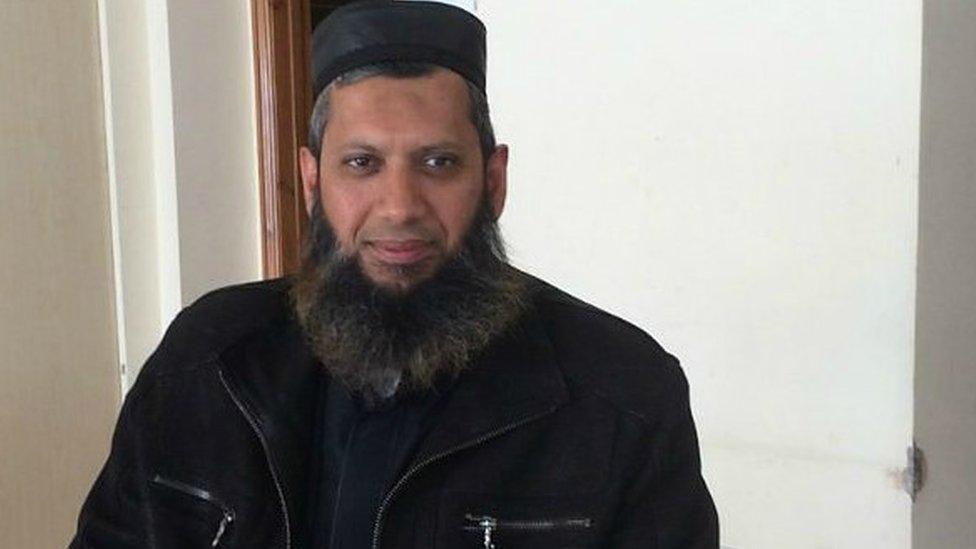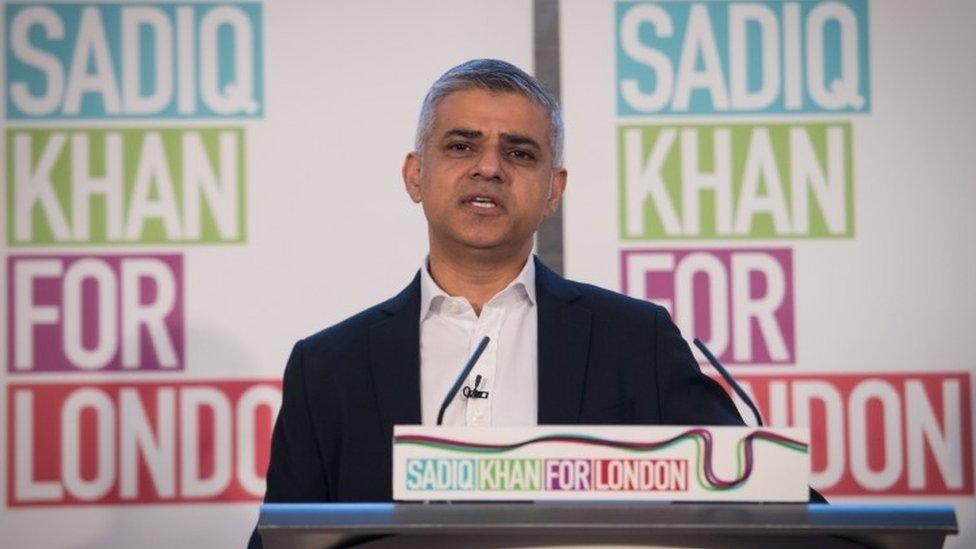David Cameron sorry over 'IS' cleric comment
- Published

The cleric said the allegations were "untrue and damaging"
David Cameron has apologised for "any misunderstanding" after describing a former imam as a supporter of the Islamic State group.
He accused Suliman Gani in Parliament of backing the militant group as he questioned Sadiq Khan's judgement in sharing a platform with him.
Mr Gani has said claims he backs IS are defamatory and must be retracted.
Earlier on Wednesday, Defence Secretary Michael Fallon apologised for making similar claims.
At Prime Minister's Questions in April, Mr Cameron said Mr Khan had appeared on a platform nine times with Mr Gani, whom the prime minister alleged "supports IS".
Mr Gani said at the time that he wanted to take legal action against Mr Cameron but was unable to do so because of Parliamentary privilege rules, which protect MPs' freedom of speech in the Commons.
'Untrue and damaging'
In a statement, Downing Street said Mr Cameron was referring to reports that Mr Gani supports "an" Islamic state.
A Number 10 spokesman said: "The prime minister is clear this does not mean Mr Gani supports the organisation Daesh and he apologises to him for any misunderstanding."
Several senior Conservatives attacked Mr Gani at the height of the London mayoral race and accused Mr Khan - who was elected London Mayor last week - of associating with extremists, an approach which Labour said was illustrative of a "divisive, dog-whistle campaign".
Mr Fallon apologised for an "inadvertent error" in labelling Mr Gani an IS sympathiser. He made the claim about the Tooting preacher during a BBC interview, as he defended the Conservatives' London mayoral election campaign.
In a message on social media last month, Mr Gani said he had "condemned IS wholeheartedly" since its inception and that it in no way represented his beliefs. He wrote: "Saying I support Islamic State is untrue and highly damaging to my reputation.
"I am totally opposed to so-called Islamic State which I view as a terrorist and inhumane organisation. Indeed as an imam and community leader, I have campaigned against the evils of Islamic State to my fellow Muslims and to others in the community."
Dr Shuja Shafi of the Muslim Council of Britain welcomed the "long overdue apology", but said "such smear-by-association has become all too common for Muslims and Muslim organisations".
"For the real extremists we are all opposed to, such tactics will only provide fresh new examples of a society not willing to accept Muslims for who they are," he said.
He called for the prime minister and the defence secretary to repeat their apologies in Parliament, and for an "urgent review" of Islamophobia in the Conservative party.
- Published11 May 2016

- Published20 April 2016

- Published21 April 2016
